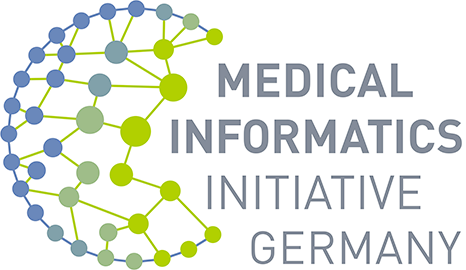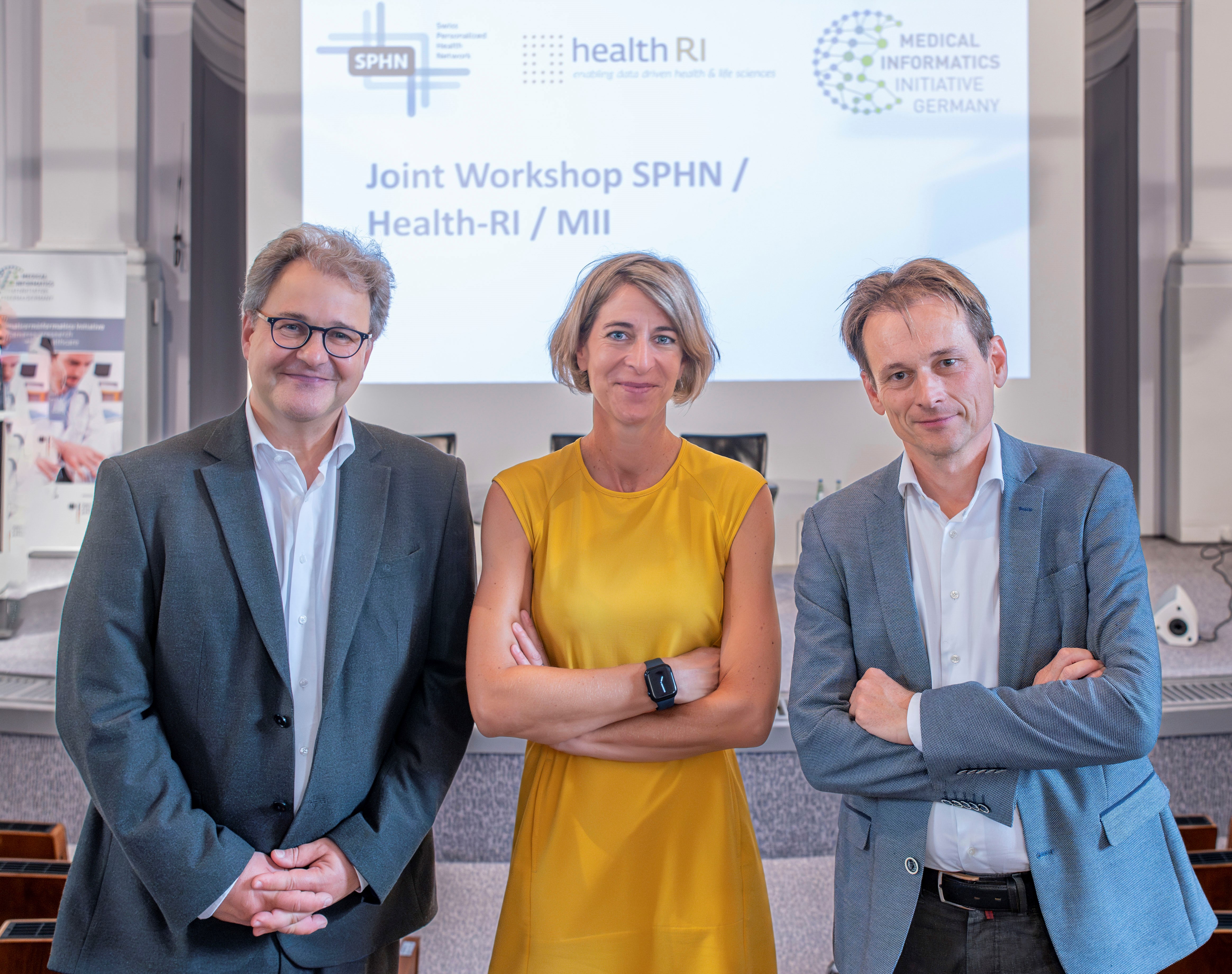Berlin, 27.06.2023. Experts from three national initiatives came together at a workshop in Berlin on 26 and 27 June to discuss procedures, obstacles and opportunities in the development of infrastructures for the use of health data for research. The German Medical Informatics Initiative (MII), funded by the Federal Ministry of Education and Research, the Swiss initiative SPHN (Swiss Personalised Health Network) and Health-RI (Health-Research Infrastructure) from the Netherlands were represented. The challenges and prospects of a common European Health Data Space (EHDS) were discussed at an evening event with an attendee from the EU Commission. The event was organised by TMF e.V. (Technology, Methods and Infrastructure for Networked Medical Research), which runs the MII coordination office together with the German Association of Medical Faculties and the German Association of Academic Medical Centers.
The introduction of the EHDS offers great opportunities for healthcare and research. An intra-European data exchange would lay the foundation for improving healthcare and enable the secondary use of health data for research. In order to successfully meet the requirements of a digital healthcare and research landscape, it is necessary to develop a common healthcare data architecture and a digital strategy. In the course of the EHDS, it is more important than ever that healthcare and research are more closely interlinked. The MII, SPHN and Health-RI in Germany, Switzerland and the Netherlands have each created the basis for a decentralised infrastructure and thus relevant preliminary work for the EHDS, but still face many challenges.
At the public evening event of the workshop, Licínio Kustra Mano, EHDS advisor at the EU Commission, DG SANTE, spoke about the timetable for the EHDS legal framework. The law on the EHDS is expected to be adopted next year. He also outlined the responsibilities for data holders, the expected benefits from a user perspective and data quality measures.
Representatives from MII, SPHN and Health-RI discussed the current status of infrastructure development in the three countries in various workshop sessions and looked at similarities and differences. The topics of consent, interoperability, data sharing, legal framework conditions, financing and sustainability were addressed.
The prerequisites for the sustainable operation of a data infrastructure are a good governance structure, robust funding, a legal basis and a responsible body, said Dr Thomas Geiger, Managing Director of SPHN.
Dr Katrin Crameri, Director of Personalised Health Informatics at the SIB Swiss Institute of Bioinformatics and Director of the SPHN Data Coordination Centre, presented the Swiss initiative and explained how Switzerland can also contribute to the EHDS as a non-EU country. SPHN pursues a decentralised approach and invests in data quality and interoperability wherever health data is recorded or produced. The aim is to make this data available for secondary use in a responsible and efficient manner.
Dr Jan-Willem Boiten, Senior Project Manager Architecture at Health-RI, gave an overview of the project in the Netherlands. Health-RI will receive 69 million euros in funding from 2022 to 2028. Collaboration with European partners is very important for the further development of the infrastructure.
Sebastian C. Semler, TMF Managing Director and Head of the MII Coordination Office, emphasised the need for an "identifier" for linking data within the federated-decentralised data infrastructure. Germany, Switzerland and the Netherlands are on a similar path to EHDS II for the secondary use of health data for research and innovation. This is very encouraging for the challenges ahead and offers opportunities for intensified cooperation.
More information:
Press contact:
Sophie Haderer, Phone.: +49 30 − 22 00 24 732, Mobile: +49 173 4054214, Email: presse@medizininformatik-initiative.de
Background:
Medical Informatics Initiative:
The aim of the Medical Informatics Initiative (MII) is to digitally network routine data from patient care throughout Germany and make it available for medical research in order to treat diseases faster and more effectively in the future. All of Germany's university medical centres are working on this together with other research institutions, companies, health insurance companies and patient representatives in the four consortia
DIFUTURE, HiGHmed, MIRACUM and SMITH. Data protection and data security have the highest priority here. The Federal Ministry of Education and Research (BMBF) is funding the MII with a total of over 400 million euros up to and including 2026.
SPHN:
The Swiss Personalised Health Network is a national initiative under the leadership of the Swiss Academy of Medical Sciences (SAMW). In collaboration with the SIB Swiss Institute of Bioinformatics, they contribute to the development, implementation and validation of coordinated data infrastructures in order to make health-relevant data usable for research. In order to make health data interoperable and accessible to research, SPHN brings together all decision-makers from the most important clinical, research and research funding institutions.
Health-RI:
Health-RI is the Dutch national initiative to promote an integrated health data infrastructure that is accessible to researchers, citizens, care providers and industry. It will enable the optimal use of health data, samples and images as well as a learning healthcare system and accelerate personalised health.



